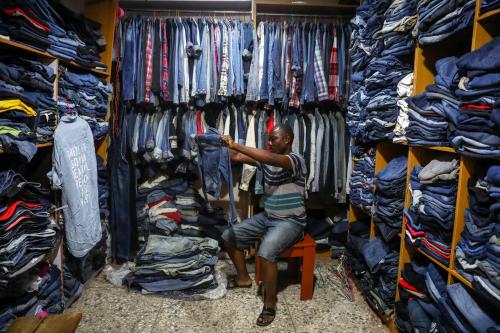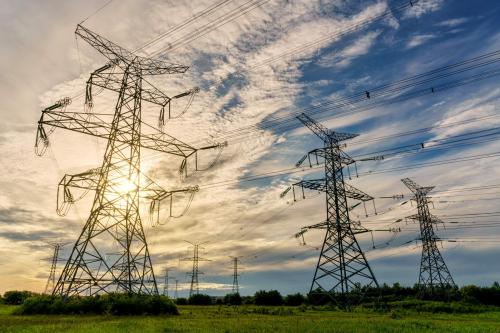Earlier this month, the World Bank launched its latest edition of Africa’s Pulse, which explores the trajectories and trends in economic growth (or losses) for regions and specific countries in Africa. Per the report, COVID-19 has had significant impact on the extractive sector. In fact, according to Deloitte in a separate report, oil companies have been facing a two-pronged crisis over the past year: an “oil price war” and the impact of COVID-19.
Specifically, in Nigeria, where the oil sector counts for half of the government revenue and for 90 percent of foreign exchange, GDP growth for oil has been on a consistent decline, a trend that could potentially have major implications for economic recovery post COVID-19, according to both reports. In fact, Deloitte highlights that crude oil producers in Nigeria have faced a decline in both price and demand for crude oil, resulting in a surplus of oil. Figure 1 from Africa’s Pulse depicts Nigeria’s oil and non-oil GDP growth throughout the year of 2020 alongside changing oil prices over that time.
Figure 1. Nigerian oil and non-oil GDP growth (%)
Source: Zeufack, Albert G.; Calderon, Cesar; Kambou, Gerard; Kubota, Megumi; Korman, Vijdan; Canales, Catalina Cantu; Aviomoh, Henry E. 2021. “Africa’s Pulse, No. 23” (April), World Bank, Washington, D.C.
This figure shows that, at the start of the pandemic, oil prices dropped significantly over the first half of the year then rose over the second half of the year—but remained far below those of the pre-COVID era. Figure 1 also shows that while oil prices have increased, Nigeria’s oil GDP has been on a consistent decline. In conjunction with the COVID-19 shock, as al-Jazeera reports, this drop in price caused Nigeria to slip into a recession in November 2020.
World Bank experts note that, due to Nigeria’s dependency on oil production and the tendency of the oil industry to be volatile, Nigeria cannot depend solely on the oil industry to economically recover. A recent assessment from the Natural Resource Governance Institute agrees with that hypothesis, adding that there is a large possibility that local oil companies in Nigeria may not even survive the economic downturn.
At the same time, as the authors of Africa’s Pulse show, other sectors in Nigeria have been experiencing growth during this tumultuous time: Indeed, the authors specifically note that Nigeria’s non-oil GDP growth was driven by robust growth in agriculture and a rebound in the service sector.








Commentary
Figure of the week: COVID’s impacts on the Nigerian extractive sector
April 16, 2021